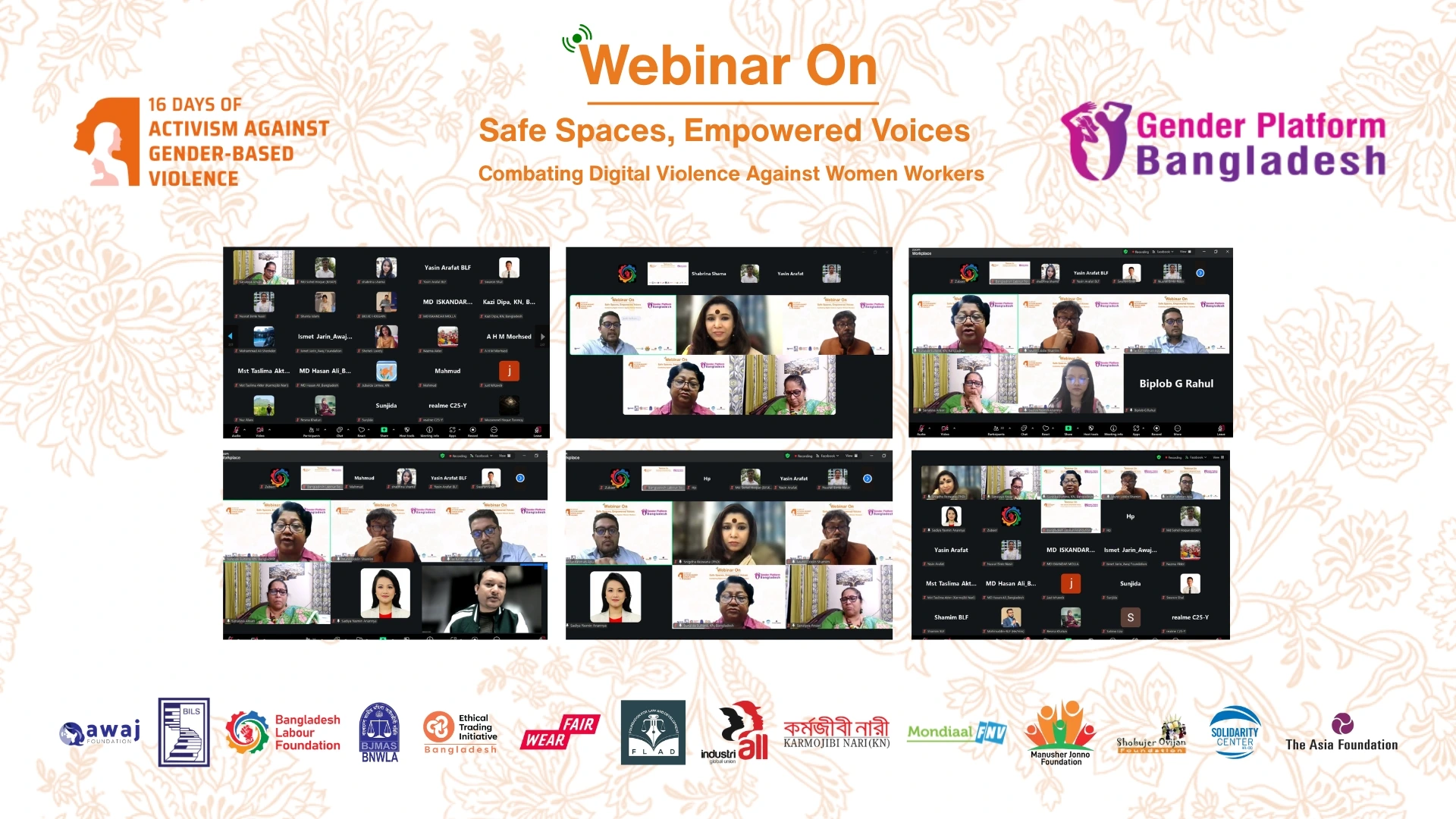The Just Transition Convention Bangladesh 2025 opened on 24 September 2025 in a solemn and hopeful spirit with the National Anthem of Bangladesh, uniting government, trade unions, employers, and international partners around a simple promise: no worker will be left behind in the climate, energy, and technology-driven transition.
Presiding over the ceremony, Mesbahuddin Ahmed, Adviser, Bangladesh Institute of Labour Studies- BILS, framed the moment as both urgent and collaborative. “A just transition is only possible when workers, employers, and government move together guided by evidence, anchored in social dialogue, and focused on people,” he emphasized, calling for tripartite stewardship and accountability at every stage.
In his welcome address, Nazrul Islam Khan, Secretary General, Bangladesh Institute of Labour Studies- BILS, set a clear agenda for action. “Climate impacts and automation are already reshaping our world of work,” he noted. “Bangladesh must invest in skills, ensure health and safety, and embed fair purchasing practices so enterprises can transition without pushing the costs onto workers.”
Offering a tone-setting speech, A K M Ashraf Uddin, Executive Director, Bangladesh Labour Foundation – BLF, spotlighted sectoral realities and solutions. “Garments, leather, agriculture, and transport are on the frontline of change,” he said. “Our response must be concrete paid reskilling time, heat-safety measures, social protection, and worker-led monitoring in supply chains. Due diligence must translate into decent jobs and dignity.” He stressed that a just transition is not a slogan but a roadmap for fair work, safer workplaces, and shared prosperity.
As Chief Guest, Dr. Md. Sanawar Jahan Bhuiyan, Honorable Secretary, Ministry of Labour and Employment (MoLE), affirmed government leadership. “We are aligning policies for green growth and decent work, and we will partner with unions and employers to expand reskilling and social protection,” the Secretary said. “Our priority is continuity of livelihoods so workers move forward with the economy, not out of it.”
Abdul Kader Hawlader, Joint Convenor, SKOP, issued a clear call to action. “Workers must have a seat at every table on reskilling plans, automation rollouts, and heat-safety protocols,” he said. “Unions are ready to co-create solutions that protect jobs, improve OSH, and extend social protection to the informal and vulnerable.”
Among others, H.E Joris van Bommel, Ambassador of the Kingdom of the Netherlands; Max Tunon, ILO Country Director Designate; Ruben Korevaar, Policy Advisor of Mondiaal FNV; Tahmid Ahmed, Vice-President of Bangladesh Employers’ Federation (BEF); Syed Sultan Uddin Ahmed, Executive Director of BILS addressed in the session.
With trade union leaders, policymakers, employers, civil society, and international partners in attendance, the opening session marked Bangladesh’s first national convention on Just Transition and reaffirmed a collective commitment to a just, inclusive, and sustainable future where no worker is left behind.




